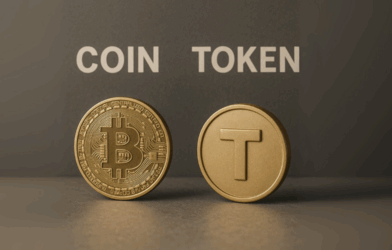Subtotal $0.00
Cryptocurrency is now no longer an experiment in the niche—it’s a global economic force that governments must no longer disregard. With increasing adoption, regulators across the world are competing to establish frameworks for digital assets. Some are spurring innovation, some are strengthening controls, and most are still trying to find the equation between investor protection and growth.
Here’s a summary of the recent global crypto regulations actions from major regions in 2025.
United States – Caution with Heavy Oversight
The US is still one of the most heavily monitored crypto markets. Regulation in 2025 is heavily led by the Securities and Exchange Commission (SEC), Commodity Futures Trading Commission (CFTC), and Congress discusses a federal framework.
- SEC vs Crypto Companies: The SEC continues to go after exchanges and projects that it deems are offering unregistered securities. Courts have begun, however, to offer clarity—2024–2025 rulings have constrained the SEC’s authority, bringing the industry guarded optimism.
- Stablecoin Regulation: Legislation in the works aims to regulate stablecoin issuers such as Circle and PayPal, mandating that they maintain reserves like banks.
- Tax Clarity: The IRS is now demanding more stringent reporting of crypto transactions, essentially treating digital assets in similar fashion to traditional securities for tax purposes.
Summary: The US is not prohibiting crypto, but it’s making compliance more challenging. The priority is on investor protection, stablecoin regulation, and getting taxes collected.
European Union – MiCA Takes Center Stage
The EU has played a forward-thinking role with the Markets in Crypto-Assets (MiCA) rule, which officially came into effect rolling out in 2024 and ongoing in 2025.
- Clear Rules: MiCA outlines a common framework in all EU member states, allowing companies to more easily operate across borders.
- Stablecoins: Strong reserves must be held by issuers, and they must be licensed.
- Consumer Protections: Compliance and disclosure must be strictly followed by exchanges and wallet providers.
Summary: The EU is staging itself as a worldwide leader in global crypto regulations cryptocurrency through making things clear and consistent. For companies, this is appealing versus the uncertain and disjointed US environment.
India – Torn Between Tax and Innovation
India has been tentatively viewing crypto. While it has not prohibited crypto, it has made it less appealing to trade with high taxes.
- 30% Flat Tax: Cryptocurrency profits are taxed at 30%, with no exemptions.
- 1% TDS (Tax Deducted at Source): Each transaction has a 1% deduction, which the traders say discourages trades.
- CBDC Push: The Reserve Bank of India (RBI) is pushing ahead with its digital rupee pilot, which is gradually increasing in scope.
Though, in 2025, there are talks of reversing the 1% TDS norm, following industry pressure and reports of slowing domestic crypto activity.
Summary: India is not outlawing crypto, but excessive taxation has put the brakes on the market. The government is promoting its digital rupee while keeping private crypto strictly under surveillance.
United Kingdom – Stepping Towards Innovation-Friendly Regulations
The UK is working to make itself a global crypto hub, particularly post-Brexit.
- Regulatory Structure: In 2024, the UK enacted law authorizing the Financial Conduct Authority (FCA) to regulate crypto businesses.
- Stablecoins: To be part of the payments system under current e-money regulations.
- Innovation Drive: The government has indicated firm support for Web3, DeFi, and blockchain firms with a view to attracting foreign companies.
Overview: The UK is constructing an organized but innovation-friendly framework to rival the EU.
Singapore – Balancing Openness and Risk Control
Singapore is still a top Asian cryptocurrency hub but has strengthened some regulations to guard investors.
- Regime for Licensing: Exchanges and payment institutions need to be licensed under the Payment Services Act.
- Retail Protection: New policies cap high-risk crypto advertisement and enforce platforms to have stronger protection mechanisms for retail users.
- Web3 Focus: In spite of restrictions, Singapore continues to nurture blockchain startups and fintech innovation.
Summary: Singapore is friendly but cautious—prioritizing trust, compliance, and creating a sustainable ecosystem.
Other Standout Updates
- Japan: One of the most forward-thinking crypto regulators, Japan mandates that exchanges store customer funds in segregated accounts, separate from company funds. It’s also pro-stablecoins and pro-Web3 expansion.
- China: Mainland China has a prohibition on crypto trading and mining but is actively promoting its digital yuan (e-CNY) aggressively. Hong Kong, though, reopened to crypto with a fresh licensing regime to court international exchanges.
- Middle East (UAE, Saudi Arabia, Qatar): The UAE, particularly Dubai, is emerging as a crypto hub with definite licensing guidelines and tax breaks. Saudi Arabia and Qatar are cautiously looking into regulation and adoption of blockchain.
The Big Picture – A Fragmented but Expanding Framework
The worldwide pattern is clear: no significant economy is directly prohibiting crypto. Rather, governments are:
- Making exchanges and stablecoins more regulated
- Broadening tax enforcement
- Testing Central Bank Digital Currencies (CBDCs)
- Balancing innovation with investor protections
For businesses and investors, the challenge is how to work with these patchwork regulations. But the trend is unmistakable—crypto is not going anywhere, and governments are in a hurry to frame the rules.
✅ Quick Recap
- US: Enforcement-dominant, with emphasis on SEC lawsuits and stablecoins.
- EU: Pioneering with MiCA, providing certainty and homogenous rules.
- India: Tax-dominant, investigating digital rupee, potential policy adjustments in the offing.
- UK: Creating an innovation hub.
- Singapore: Strict but supportive of long-term development.
- Others: Japan forward-thinking, China driving CBDC, UAE transforming into a global hub.












Tnews
Your sport blog is simply fantastic! The in-depth analysis, engaging writing style, and up-to-date coverage of various sports events make it a must-visit for any sports enthusiast.
Tnews
Whether it\'s breaking news, expert opinions, or inspiring athlete profiles, your blog delivers a winning combination of excitement and information that keeps.
Tnews
The way you seamlessly blend statistical insights with compelling storytelling creates an immersive and captivating reading experience. Whether it\'s the latest match updates, behind-the-scenes glimpses.